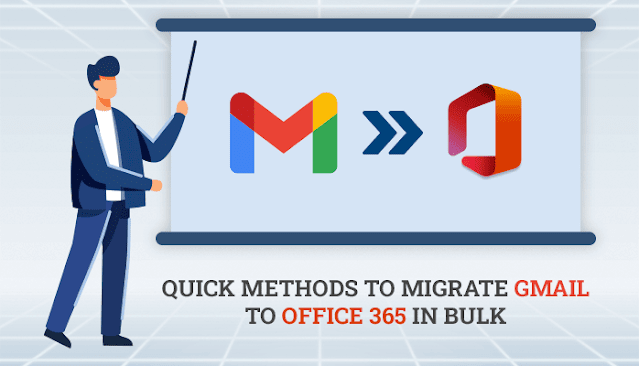How to Hold a Safe In-Person Corporate Event Right Now: 11 Things to Consider
The pandemic has shown us that everything is possible with technology. From doing our day-to-day work obligations to hosting a major corporate event, getting things done in a virtual setting is attainable. But while we can always shift to online meetings and learn from our screens, nothing beats socialising with industry leaders, colleagues, and other like-minded individuals in person.
One of the things we miss about pre-pandemic life is attending face-to-face corporate events like conferences or conventions. We missed learning from knowledgeable speakers, whose enthusiasm is felt across the room. We missed interacting with new faces and expanding our networks. Lastly, we missed those little, special treats, like the free merch, lunch, and cocktails!
The good news is, compared to last year, hosting in-person events today is already obtainable.
But of course, hosting meetings and events in today’s pandemic era requires major adjusting. If you’re an event planner, check out our tips on how to host a safe and successful event in light of the pandemic.
1. Understand the risk factors when planning
Before pushing through with a face-to-face corporate event and finding a unique conference venue, consider the following risk factors.
The number of Covid-19 cases and level of transmission within the community
Potential for exposure during travel
Length or duration of the event
The setting of the event (outdoor setting is much safer than indoors)
Number and crowding of people at the event
The attendees’ wellbeing, vaccination status, and vulnerability
The attendees’ behaviour during the event
These risk factors will dictate the next steps to planning your event, including the necessary safety measures to implement. These will also help you decide whether or not it’s practical to cancel or postpone the event.
2. Prioritise outdoor venues
We all know that indoor conference venues, especially in places with poor ventilation, may pose more risk than outdoor ones. So give your attendees some peace of mind by picking an outdoor location for your corporate event.
If you’re picking a hotel, check if they have gardens and other open spaces that can accommodate your expected number of attendees while maintaining a safe distance.
3. Pay attention to ventilation and space size
If you’re hosting an event in an indoor space, like a traditional boardroom or function room, pay attention to the ventilation and size of the space. Does it have a window that can be opened for better air circulation? Is it spacious enough to accommodate your expected number of guests while leaving extra space to encourage social distancing?
4. Have COVID-19 safety measures in place
Ensure a safe corporate event by implementing the following protocols:
Conduct temperature checks
Encourage guests to maintain social distancing of 1 meter
Promote contactless methods of doing things (no-handshake rule, QR code scanning, etc)
Keep the masks on
Make sure the disinfecting supplies are accessible. If possible, you can distribute pocket-sized supplies to everyone.
Discourage anyone who is sick from attending the meeting
5. Pick a venue that cares about disinfecting measures
When evaluating possible venues for your event, narrow down your search to properties that take disinfecting measures seriously. Browse their websites and see the safety measures they’re taking to ensure the safety of their guests. See if they also have made a few adjustments to their meeting rooms, seating layouts, and conference venue options.
6. Require Vaccination / PCR tests for guests
To ensure the highest levels of safety, you may ask all of the attendees to present an updated negative RT-PCR test result (within 72 hours) or proof of vaccination. This greatly limits the risk of transmission and increases the confidence of the attendees.
In addition to that, encourage guests who are feeling unwell and are vulnerable (pregnant women, minors, high-risk elderly, people with comorbidities) to stay at home.
7. Have a virtual option for those who can’t attend
Since we’re still in the middle of a pandemic, we can’t enforce in-person attendance. We should also be open to the fact that not everyone has access to testing and vaccines at the moment. That said, planners should embrace technology to make safe events possible, even for guests who opt to stay at home.
Have the event recorded on camera and learn more about live streaming platforms. You may also give out Zoom links your stay-at-home guests can access, just like in webinars.
8. No to Buffet: Yes to packed meals
Who doesn’t love buffet? Of course, we all miss the catering services at corporate events but, unfortunately, they’re not the safest way to go. Instead of having self-service buffets, serve meals in individually boxed containers to ensure a higher level of food safety.
9. Keep the event short
Take into consideration the duration of the event. Longer meetings pose a greater risk. You can adjust the program and make it shorter by getting rid of the non-essential aspects, like intermission numbers and games.
10. Modify the event layout for social distancing
You may limit the people attending, reduce seating capacities, and/or arrange seats in a way that promotes safe distances from each person. You may also consider venues with multiple exits and entrances to avoid overcrowding. Let your hotel or conference venue provider know so they can make such arrangements.
11. Look for venues with flexible refund policies
The last-minute cancellation when everything is booked and paid for is a total nightmare for event planners. The COVID-19 situation might be okay today but the government might heighten the restrictions (thus, prohibiting large gatherings) once the cases surge again. To lessen the possible inconveniences, book a hotel or event venue with flexible cancellation and refund policies.
Author Bio: Carmina Natividad is a passionate writer for Meet in DCU, a unique conference venue in Dublin which is perfect for corporate meetings, conferences, seminars and events. Writing articles about travel and lifestyle is one thing she finds enjoyable, next to playing the piano.


